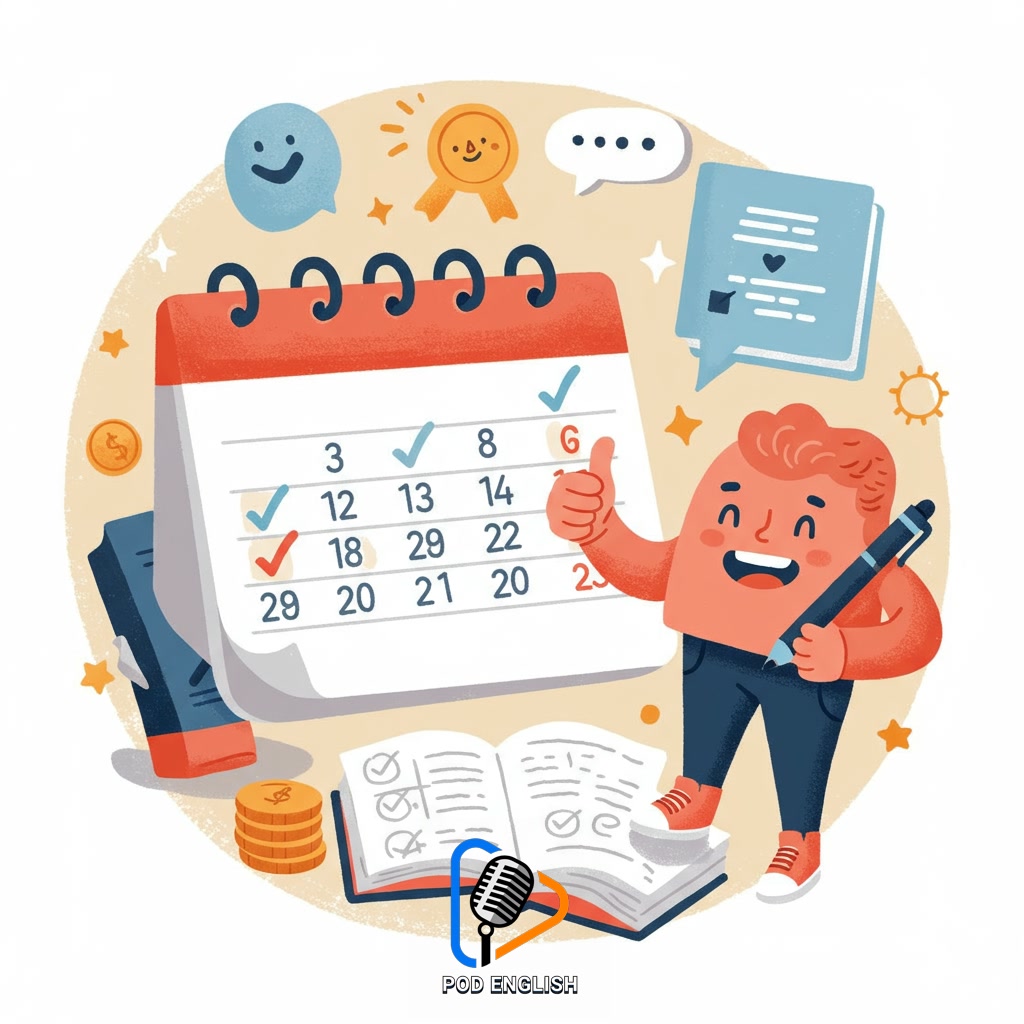Learn English
Transform Your English Study: Build a Fun and Effective Daily Learning Habit

This content provides strategies to transform your English study experience by building a fun and effective daily learning habit. It focuses on making the process of studying English more enjoyable and productive. Discover practical approaches to integrate consistent practice into your routine and achieve your language goals effectively.
Table of Contents
- Section 1: Why a Daily English Learning Habit is Your Game Changer
- Section 2: Assess Your Current Situation and Set Achievable Goals
- Section 3: Find the ‘Fun’ in Study: Discover Engaging Methods
- Section 4: Design Your Personalized Daily English Routine
- Section 5: Strategies for Sticking to Your Habit Consistently
- Section 6: Track Your Progress and Celebrate Successes
Section 1: Why a Daily English Learning Habit is Your Game Changer
Many English learners find themselves stuck in a cycle of intense, sporadic study followed by long breaks. While bursts of effort can be helpful, they often lack the staying power needed for true fluency. This is where a daily learning habit becomes your ultimate game changer. Engaging with English every single day, even for just a short period, builds incredible momentum. It prevents forgetting, reinforces what you’ve learned, and integrates English into your daily routine naturally. These small, consistent steps accumulate rapidly, leading to noticeable progress and boosting your confidence in ways that infrequent study simply cannot. It transforms English from a chore into a regular, manageable part of your life, setting the stage for sustainable improvement and ultimately helping you achieve your language goals much more effectively.

Why a Daily English Learning Habit is Your Game Changer
Section 2: Assess Your Current Situation and Set Achievable Goals
Moving away from inconsistent study requires understanding where you are right now. Begin by honestly assessing your current English level and identifying what you want to achieve. This doesn’t have to be formal; you can reflect on your comfort with different skills like speaking, listening, reading, and writing, or try a quick online test to get a general idea. Once you have a clear picture of your starting point, set specific, realistic, and time-bound goals. Instead of a vague goal like ‘improve my English,’ aim for something measurable, such as ‘be able to understand simple movie dialogues without subtitles in 6 months’ or ‘confidently participate in a 10-minute English conversation next month.’ Achievable goals provide direction, boost motivation, and allow you to track your progress, making your daily study habit feel purposeful and rewarding.

Assess Your Current Situation and Set Achievable Goals
Section 3: Find the ‘Fun’ in Study: Discover Engaging Methods
Transforming your English study from a chore into an enjoyable habit begins with exploring methods that genuinely resonate with you. Forget rote memorization if it feels tedious; instead, discover how to integrate English into your daily life through activities you already love. This could mean watching movies or TV series in English, listening to podcasts or music, playing video games with English dialogue, or reading books, comics, or articles on topics you find fascinating. Language learning apps offer gamified experiences that make practice feel less like work and more like play. Connecting with other learners or native speakers through online communities or language exchange partners can also add a fun, social dimension. The key is experimentation: try different approaches until you find the ones that make you look forward to your study time.

Find the ‘Fun’ in Study: Discover Engaging Methods
Section 4: Design Your Personalized Daily English Routine
Building on the idea of finding methods you enjoy, the next crucial step is to design a personalized daily English routine that fits your life. This isn’t about rigid schedules, but about creating a flexible structure where learning happens consistently. Start by identifying small pockets of time you can dedicate each day – perhaps 15-30 minutes. Think about when you are most alert and able to focus. Consider what activities you want to include based on your goals and preferences – maybe listening to a podcast during your commute, reading a short article during lunch, or practicing speaking with a language partner in the evening. The key is consistency over intensity. Don’t try to do too much at once; begin with something manageable and gradually expand as your habit strengthens. Make it yours, make it enjoyable, and make it a non-negotiable part of your day.

Design Your Personalized Daily English Routine
Section 5: Strategies for Sticking to Your Habit Consistently
Once you’ve designed a personalized English routine you enjoy, the next critical step is developing strategies to ensure you stick to it consistently. Consistency is key to seeing real progress. Start by setting achievable daily or weekly goals; don’t aim for perfection immediately. Track your progress, perhaps with a simple checklist or app, to visualize your achievements and stay motivated. Building in small rewards for hitting milestones can also provide a powerful incentive. Be prepared for days when life gets in the way – flexibility is important. If you miss a session, don’t dwell on it; simply get back on track the next day. Consider finding an accountability partner, like a friend or fellow learner, to share your goals and encourage each other. By implementing these tactics, you transform your routine from a plan into a deeply ingrained, effective daily habit.

Strategies for Sticking to Your Habit Consistently
Section 6: Track Your Progress and Celebrate Successes
Once you’ve established your consistent daily English routine, the next vital step is keeping track of your progress and acknowledging your achievements. This isn’t just about measuring how far you’ve come; it’s a powerful motivational tool. By visually seeing your consistency – perhaps through a simple checklist, calendar marks, or a tracking app – you reinforce the habit and gain a tangible sense of accomplishment. When you hit milestones, no matter how small (like completing a week of study or mastering a new grammar point), take time to celebrate. This could be a small treat, a short break, or simply acknowledging your effort. Celebrating successes creates positive reinforcement, making your English study feel more rewarding and enjoyable, fueling your motivation to continue on your language learning journey.

Track Your Progress and Celebrate Successes













